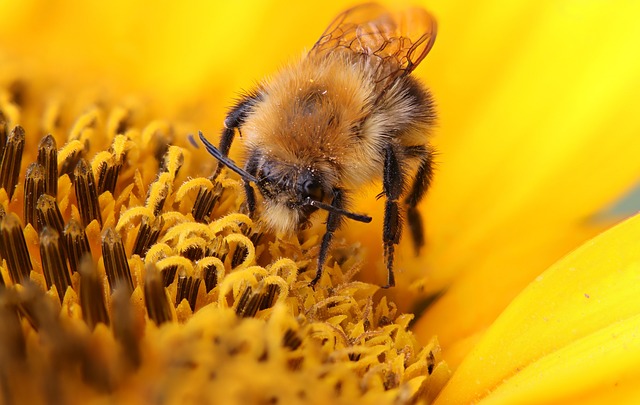Psocids, or book lice, thrive in moist environments and organic materials, becoming significant pests in historic buildings and archives. Professional psocid control services offer eco-friendly solutions like moisture source elimination and biological control, shifting from chemical-heavy methods. Residential treatments involve inspections, sealing entry points, and natural repellents, while commercial plans adhere to strict environmental guidelines. This shift prioritizes both effective control and environmental stewardship through innovative, non-toxic methods like heat treatment and natural product treatments. Regular maintenance, including inspections and hygiene protocols, is key for long-term psocid management in both residential and commercial settings.
Psocids, often overlooked, are a common yet nuisance pest infesting homes and businesses. Beyond traditional methods, there’s a growing focus on humane and eco-conscious psocid control services. This article explores effective strategies for both residential and commercial psocid removal, from understanding their behavior to implementing long-term control plans. Discover professional psocid extermination techniques that balance efficiency with environmental considerations, offering a peaceful solution to this persistent problem.
Understanding Psocids: Behavior and Habitat
Psocids, also known as book lice, are tiny insects that belong to the Psocidae family. They are often overlooked due to their miniscule size but can quickly become a significant pest in both residential and commercial settings. Understanding their behavior and habitat is crucial when it comes to effective control. These creatures prefer moist environments and are commonly found in areas with high organic material content, such as libraries, museums, and historical sites. They feed on starchy materials like paper, cloth, and even wood, making them a menace in historic buildings and archives. Psocids have a short life cycle, with the ability to breed rapidly, leading to infestations if not addressed promptly.
Professional psocid removal services employ various eco-friendly solutions to tackle these pests. This includes identifying and eliminating moisture sources, using specialized cleaning techniques for infested items, and implementing preventive measures. Commercial psocid extermination often involves targeted treatments with minimal environmental impact. For residential psocid treatment, professionals create customized control plans that may include regular inspections, sealing entry points, and the application of natural repellents to disrupt their habitat and prevent future infestations.
Traditional vs. Humane Control Methods
In the realm of psocid management, a shift is underway from traditional, often harsh, extermination methods to more humane and eco-conscious approaches. While professional psocid removal services have long been available for both residential and commercial spaces, the latest trends focus on sustainable pest control for psocids. Traditional psocid control often relies on powerful chemicals that can leave remnants and potentially harm non-target organisms. In contrast, humane control methods prioritize safety, minimizing environmental impact, and targeting specific psocid populations without causing widespread disruption to ecosystems.
Eco-friendly psocid solutions involve strategies like habitat modification, biological control using natural predators, and targeted treatments with low-risk chemicals. These approaches not only effectively remove psocid infestations but also contribute to a healthier, more balanced environment. For residential psocid treatment, homeowners can implement preventive measures such as regular cleaning and sealing entry points. Commercial psocid extermination, on the other hand, benefits from tailored control plans that address specific facility needs while adhering to strict environmental guidelines. This paradigm shift in psocid management reflects a growing awareness of the interconnectedness between human activities and ecosystem health.
Eco-Friendly Solutions for Effective Removal
When dealing with psocid infestations, there’s a growing demand for eco-friendly solutions that are both effective and humane. Traditional methods often rely on toxic chemicals, raising concerns about environmental impact and potential health risks. However, professional psocid removal services now offer innovative approaches to control these tiny invaders without resorting to harsh pesticides.
Eco-conscious psocid control plans focus on prevention, sanitation, and targeted treatments using natural or biodegradable products. Residential and commercial properties can benefit from integrated pest management strategies that involve regular inspections, sealing entry points, and maintaining cleanliness. For severe infestations, professional services may employ heat treatment or specialized equipment to eliminate psocids while minimizing environmental disruption. These solutions not only address the immediate issue but also contribute to a healthier, more sustainable living and working environment.
Implementation and Maintenance: Long-Term Plans
Implementing effective psocid management requires a strategic approach that goes beyond immediate relief. Long-term plans for psocid control focus on prevention and sustained eco-conscious solutions, ensuring these pests don’t return. Professional psocid removal services play a vital role here, offering tailored treatments for both residential and commercial spaces. By employing eco-friendly psocid solutions, these experts can effectively eliminate existing infestations while minimizing environmental impact.
Regular maintenance is key to successful long-term control. This involves periodic inspections to identify early signs of infestation and prompt action using pre-planned psocid control services. Commercial properties should implement strict hygiene protocols and structural adjustments to deter psocids, supported by regular professional exterminations. For residential settings, ongoing prevention includes sealing entry points, maintaining cleanliness, and utilizing natural repellents, in conjunction with targeted pest control for psocids when necessary.
In conclusion, managing psocids requires a balanced approach that considers both humane and ecological well-being. By understanding their behavior and habitat, we can implement effective, yet safe, methods such as eco-friendly solutions and professional psocid removal services. For residential or commercial spaces, long-term control plans involving regular maintenance and monitoring are key to preventing reinfestations. When seeking psocid pest control, opt for innovative strategies that address the issue without causing harm, ensuring a comfortable living or working environment while maintaining a healthy ecosystem.
